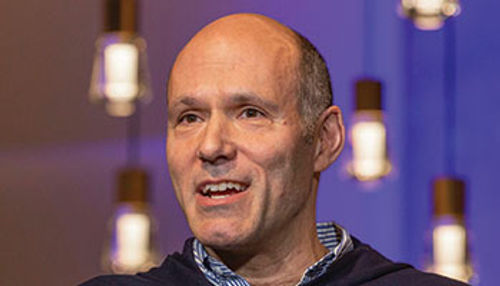Peter Kern is CEO of Expedia Group.
I think the summer of '22 will probably be the biggest travel summer of all time, even with some countries constrained. We're optimistic, we're ambitious for ourselves and our partners, we want to get everybody back to success, and we think there's a big opportunity for us all to be more successful because we work together in smarter ways.
There could be bumps in business travel and other kinds of travel, but next summer, if this summer was any indication, will be gangbusters and, hopefully, the beginning of the end in terms of Covid's impact on travel. I think we'll be coming out of this meaningfully improved as an industry, starting next summer. So, knock wood, that is in our heads and in our planning.

Peter Kern, Expedia Group
I think the U.S. will stay a steadfast and strong market for us. Domestic was tremendously strong for us. But I wouldn't say, universally, we're as strong as we want to be in every aspect of domestic travel. We've always been stronger in big destination cities, Vegas, things like that, and some got hit during Covid. New York City got totally killed, but Hawaii was awesome, Florida was awesome. Domestic's awesome, but there have been winners and losers. So, for every loser, we have a winner or, hopefully, two winners,
Vrbo did great and continues to be super strong. Leisure has, weirdly, started to replace business in the front of the plane. I believe cities will come back, of course, and will be beneficiaries of international travel again.
Long-haul air is, obviously, more beneficial for us than short-haul air, and long-haul international -- Europe to U.S., U.S. to Europe, to Asia, etc. -- that's part of our bread and butter, and that's been fairly restricted. We had this moment where the U.S. opened, and now it's a little clumsy again. But Europe will be the next-best market for us after the U.S., and after that, Latin America, then Asia-Pacific.
Business travel will come back. [We sold Egencia to American Express Global Business Travel] not because we thought corporate travel would lag. We believe in corporate travel, which is why we kept an equity stake in the company, and we will power Amex GBT and other corporate travel players. But trying to be all things was slowing down our company. If we chased every endpoint, we were going to make it too complex to build the core that we needed. So, we'll let others focus on the particular service needs of corporate players and instead focus on the underpinnings, the core tech stack and the core supply that could power all these people.
I think the biggest challenge for OTAs, generally, is taking care of the customer through Covid. Not just informationally; I think people are beyond, "What are the cleanliness standards? Do they come into my room and clean it, or do they wear masks at the hotel?" I think people are figuring out how to protect themselves and deal with their own risks. But, like the ebb and flow of omicron, some countries put up restrictions, others change the rules, and the traveler thinks, "What does it mean to me, can I cancel, can I not?" All this change creates traveler pain and also creates company pain because you've got to service customers, and they're needing service at much more elevated levels.
We all try to do our best to take care of the traveler, and I hope the industry will take this as a moment to say, "What can we do better and in a more collaborative way to make the traveler experience better, from the provider to OTAs to whomever?" I think there are still a fair number of antiquated rules and processes that just make it harder than it needs to be.
We've made tremendous strides technologically that not only help us take care of more customers more quickly but which have freed up capital to invest in people to take care of customers. If they don't need to talk to a person and they can get a quick, easy answer to their problem, they're happier. All the data shows that. And then we can have really good people to solve harder problems at a higher rate, in a faster way. That's where we're trying to go.
Over the last 18 months, there's been a lot of putting out fires, dealing with new fires, etc. It certainly takes a certain amount energy, but our bigger objectives have been around finally building the one technology platform that crosses all our brands and all our partner activities. We were never purpose-built that way -- we had a bunch of stacks that did their own things. Now we're rebuilding from the bottom up to scale to the world and really serve partners and get customer traveler innovation much more quickly. We think that generates a huge amount of opportunity for our B2C and B2B businesses. There are opportunities to use machine learning and other tools to make the experience better and better and better and iterate on it instead of iterating on narrow pieces of it.
We're also pushing on the brand front. We're treating [Expedia Group] as a house of brands as opposed to discrete businesses that basically compete with one another. We've talked about how we're going to bring the loyalty programs together so that customers can use that currency across products. A lot of work still has to happen to realize on that, but that's a big push.
We're trying to play offense into what we think will be a recovery. We're less worried about playing defense, which, you know, six months ago, nine months ago, I couldn't say. So, kudos to science and innovation and ingenuity. I think '22 into '23 will be a great period for the industry, and I hope the world gets to travel again.
-- Interviewed by Arnie Weissmann